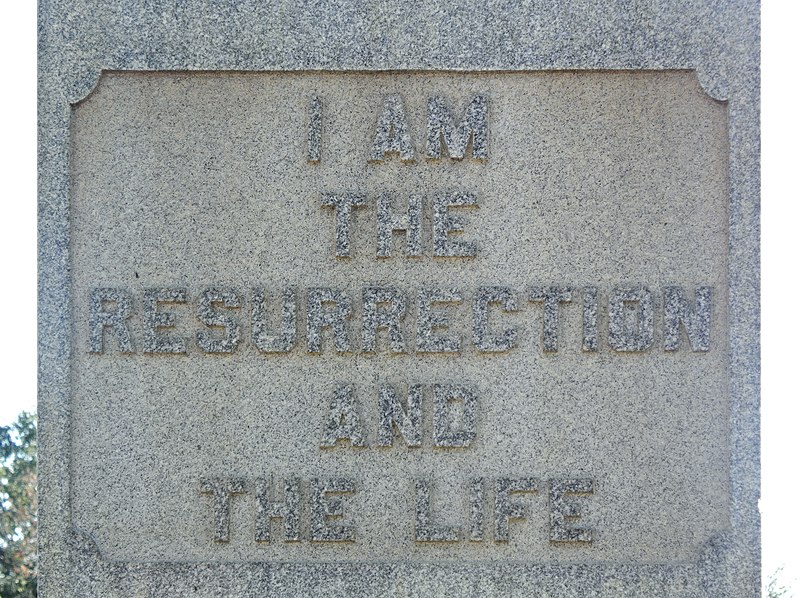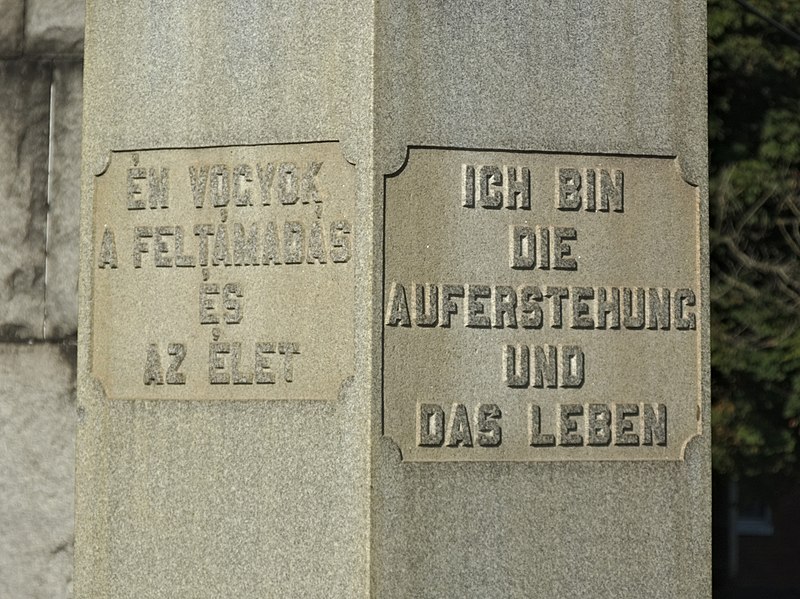
An angel steps out of a rusticated boulder to drop a flower on the hallowed ground of the Weber family’s graves.


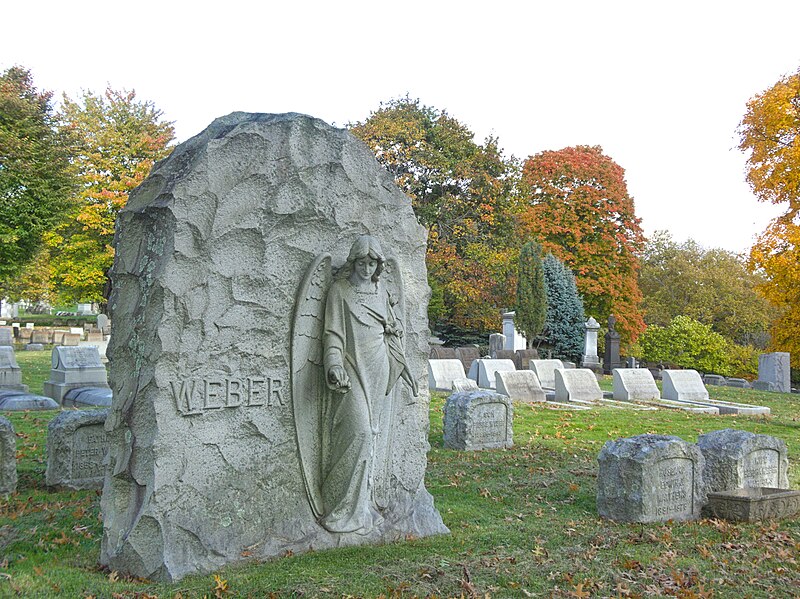

This striking angel is the work of Brenda Putnam, but the cemetery’s site (in an article that has since disappeared) was vague and confusing on dates. It said that the bronze angel was cast “after 1910” as a replica of an original granite sculpture. The earliest dated Putnam work listed in her sparse Wikipedia article is from 1917. Brenda Putnam would have been twenty years old in 1910; she would thus have been a teenager when the granite version was done, if the date “1910” means anything at all. Henry Kirke Porter, identified as “the best-known Porter here” by the cemetery’s site, died in 1921, and perhaps that gives us a better guess at the date of the sculpture.
If old Pa Pitt had to guess, he would imagine that those glorious wings were too heavy for granite, and the bronze cast was made when the original sculpture proved unstable.

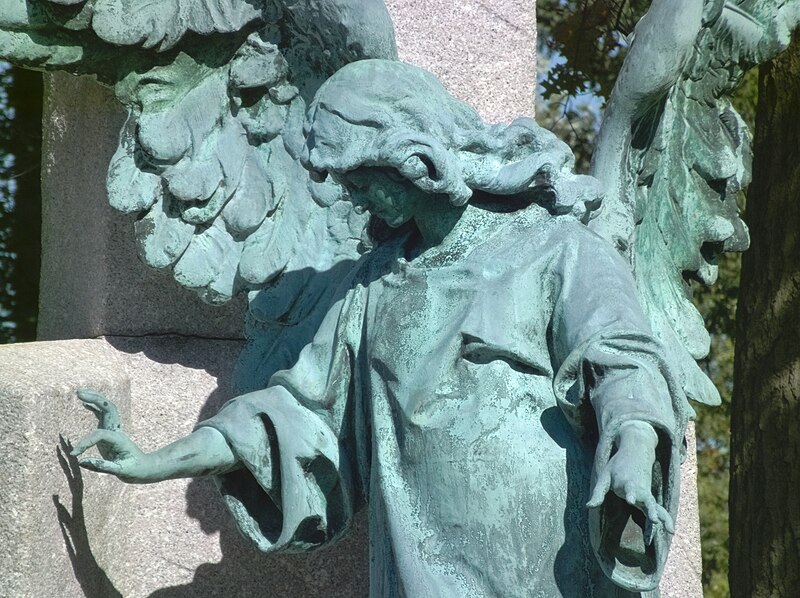


An elaborately Victorian column with a recording angel at the top and statues of Hope and Faith on the lavish base. (We notice the absence of Charity, perhaps because the Rooks decided to take their money with them in the form of this monument.)
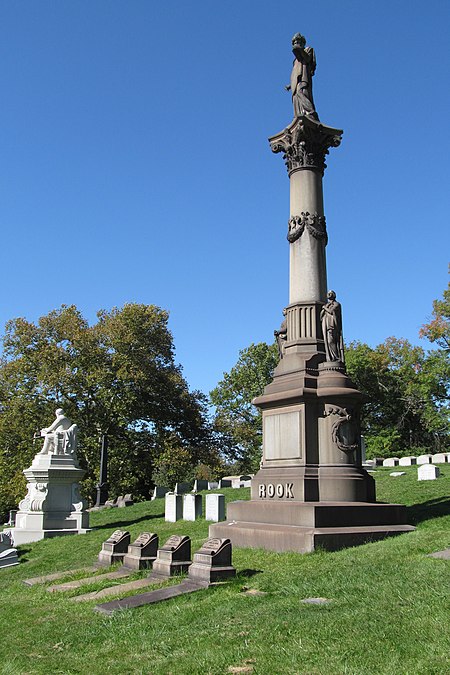





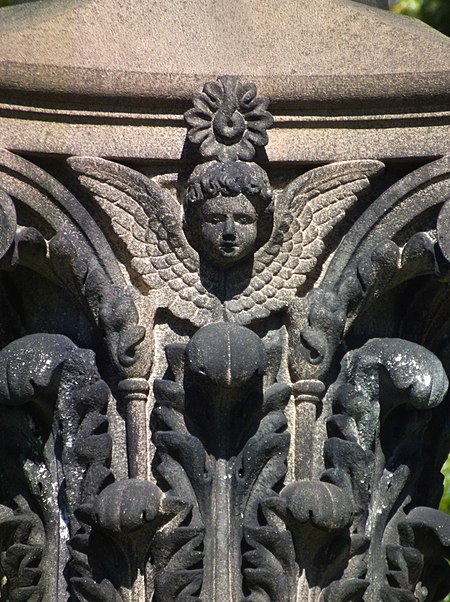



Note how the shadow of the angel is moving across the Lewis-Elliott monument behind it. If we wait just a few minutes…

Perfect.

An editor’s work is never done. Here is Daniel O’Neill, owner and editor of the Dispatch, still at work 145 years after his death in 1877. Though he died at the young age of 47, he had already built the Dispatch into Pittsburgh’s most respected newspaper, a position it held until the great newspaper massacre of the early 1920s, when paper shortages and rising costs forced hundreds or thousands of papers across the country out of business. Before that there had been at least a dozen English dailies in Pittsburgh, not to mention three in German and several in other languages.

The monument itself is a harmoniously eclectic mix of styles in the Victorian manner: classical elements dominate, but Mr. O’Neill’s desk rests on an Egyptian pedestal.


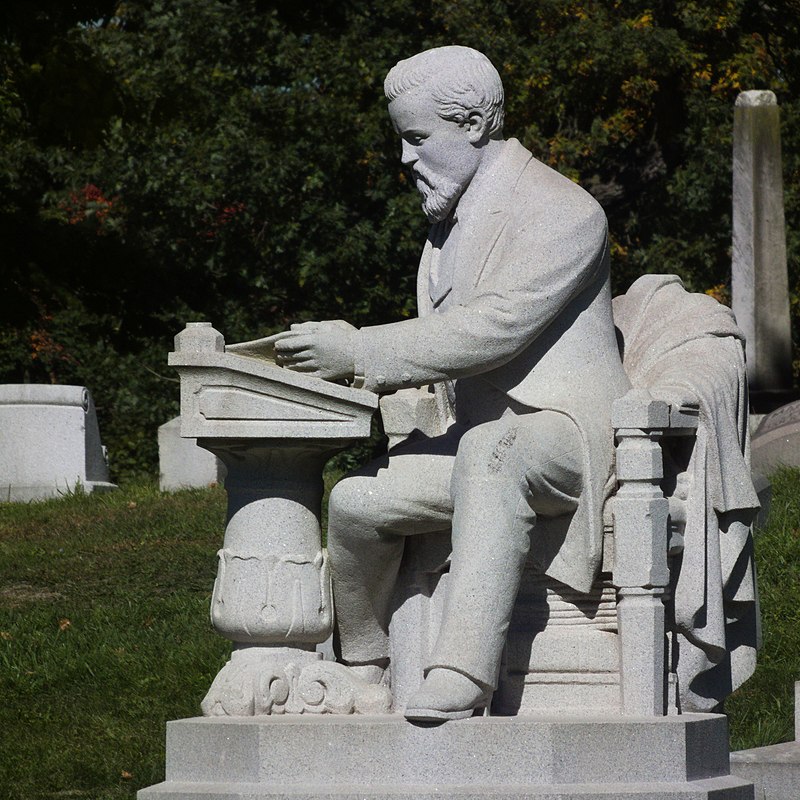



St. Michael’s was a German parish, but it must have had a small Hungarian contingent as well, or it shared its cemetery with a Hungarian parish. This statue of Christ blessing visitors as they enter the cemetery (it is placed in the middle of a circle at the entrance) stands on a base with the inscription EGO SUM RESURRECTIO ET VITA in Latin and three other languages: German, English, and Hungarian.

